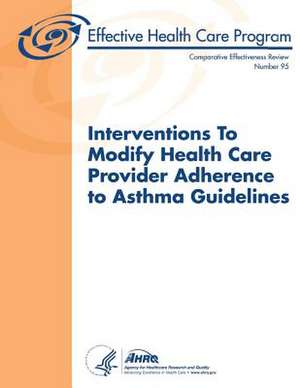Interventions to Modify Health Care Provider Adherence to Asthma Guidelines
Autor U. S. Department of Heal Human Services, Agency for Healthcare Resea And Qualityen Limba Engleză Paperback
Preț: 196.27 lei
Preț vechi: 206.60 lei
-5% Nou
Puncte Express: 294
Preț estimativ în valută:
37.56€ • 39.31$ • 31.26£
37.56€ • 39.31$ • 31.26£
Carte disponibilă
Livrare economică 10-24 martie
Preluare comenzi: 021 569.72.76
Specificații
ISBN-13: 9781491071656
ISBN-10: 1491071656
Pagini: 386
Dimensiuni: 216 x 280 x 20 mm
Greutate: 0.89 kg
Editura: CREATESPACE
ISBN-10: 1491071656
Pagini: 386
Dimensiuni: 216 x 280 x 20 mm
Greutate: 0.89 kg
Editura: CREATESPACE
